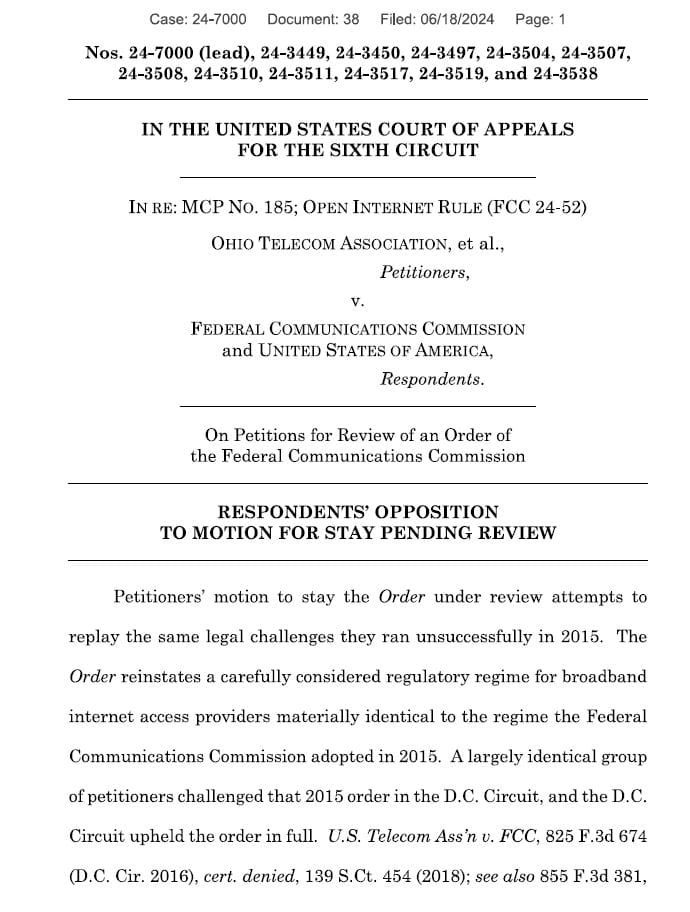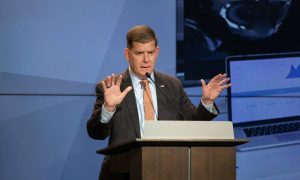
Net Neutrality
‘The motion for stay pending review should be denied,’ the FCC says.

 Photo by Tingey Injury Law Firm
Photo by Tingey Injury Law Firm
WASHINGTON, June 19, 2024 – Federal regulators want new Internet service rules to take effect next month, telling a federal court that an industry-sought postponement failed key legal hurdles.
The Federal Communications Commission, defending its Net Neutrality rules aimed at Internet Service Providers, Tuesday asked the U.S. Court of Appeals for the Sixth Circuit to let the July 22 effective date of the rules stand.
“The public interest weighs strongly in favor of allowing the rules to take effect to protect other participants in the internet economy, including consumers and edge providers,” FCC lawyers told the court in a 30-page opposition.
ISP trade organizations – including USTelecom, NCTA and CTIA – have asked the court to stay the rules while under judicial review. They have also asked the court to issue a ruling by July 15 – providing a brief window of time perhaps to seek a stay from the Supreme Court if the Sixth Circuit sided with the FCC.
FCC lawyers said the ISP groups met none of the legal tests needed to justify a stay, including irreparable harm.
“[The ISPs] cannot establish they are likely to prevail on the merits when, in a virtually identical posture nine years ago, a sister circuit held that their claims lacked merit. The motion for stay pending review should be denied,” the FCC said.
The FCC rules included three “bright-line” standards, such as a ban on the blocking and throttling of lawful content and a prohibition on paid prioritization in which ISPs favor some traffic over other traffic for the financial gain of an affiliated entity.
In justifying the rules, the FCC said the paid prioritization ban was a response to actual marketplace harms.
“Just three years ago, AT&T sought to exempt traffic of its affiliated video provider, DirecTV, from its data caps to confer an advantage over competitors – and was stopped only when California adopted state-level open-internet rules,” the FCC told the Sixth Circuit.
ISPs’ key legal argument was that Congress never provided the FCC with clear authority to impose utility-style regulation of vast economic and political importance – a judicial formulation known as the Major Questions Doctrine.
“Because the [Net Neutrality order] simply follows the best reading of the statute, the major-questions doctrine does not come into play,” the FCC said.
Previously, the FCC asked the Sixth Circuit to transfer the case to the U.S. Court of Appeals of the D.C. Circuit – the venue of prior Net Neutrality disputes. That request remained pending.
The ISPs have urged the court to keep the case.
“Washington, D.C., has no monopoly on the Internet or administrative law,” the ISPs said.


